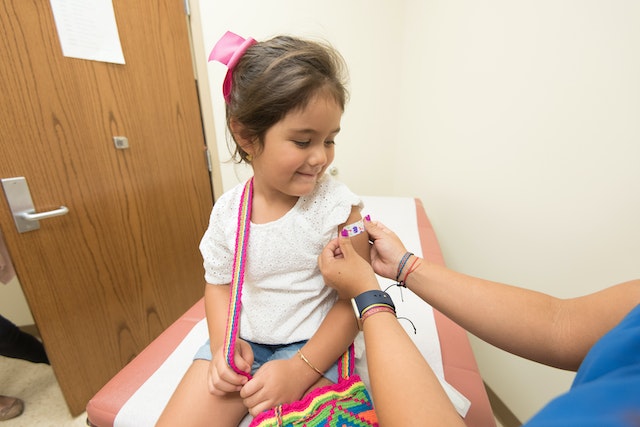Vaccinations are an essential part of a child’s healthcare routine.
Vaccinations protect children from serious diseases and illnesses that can have lifelong consequences.
In this article, we will discuss why children are given vaccinations and which vaccinations are most important for children.
Why are children given vaccinations?
Vaccinations are given to children to protect them from serious diseases and illnesses.
When a child receives a vaccination, they are given a small amount of a weakened or inactive form of a specific virus or bacteria.
This allows the child’s immune system to develop immunity to the disease without actually getting sick.
Vaccinations work by stimulating the body’s immune system to produce antibodies, which are proteins that help fight off infections.
If a child is exposed to a disease after receiving a vaccination, their immune system will recognize the virus or bacteria and produce the antibodies needed to fight off the infection.
Vaccinations are important because they protect children from serious diseases that can have lifelong consequences.
Some of the diseases that vaccinations protect against include:
Measles, mumps, and rubella (MMR):
The MMR vaccine protects against measles, mumps, and rubella, which can cause serious complications, including brain damage, deafness, and blindness.
Polio:
The polio vaccine protects against polio, which can cause paralysis and even death.
Hepatitis B:
The hepatitis B vaccine protects against hepatitis B, which can cause liver damage and cancer.
Diphtheria, tetanus, and pertussis (DTaP):
The DTaP vaccine protects against diphtheria, tetanus, and pertussis (also known as whooping cough), which can cause severe respiratory infections.
Haemophilus influenzae type b (Hib):
The Hib vaccine protects against Hib, which can cause meningitis and pneumonia.
Varicella (chickenpox):
The varicella vaccine protects against chickenpox, which can cause severe skin infections and complications such as pneumonia.
Human papillomavirus (HPV):
The HPV vaccine protects against HPV, which can cause cervical cancer and other types of cancer.
Which vaccinations are most important for children?
All vaccinations are important for children, but some are considered more critical than others.
The following vaccinations are considered to be the most important for children:
MMR:
The MMR vaccine is critical because measles, mumps, and rubella can cause serious complications, including brain damage, deafness, and blindness.
DTaP:
The DTaP vaccine is critical because diphtheria, tetanus, and pertussis can cause severe respiratory infections.
Polio:
The polio vaccine is critical because polio can cause paralysis and even death.
Hib:
The Hib vaccine is critical because Hib can cause meningitis and pneumonia.
Hepatitis B:
The hepatitis B vaccine is critical because hepatitis B can cause liver damage and cancer.
Varicella:
The varicella vaccine is critical because chickenpox can cause severe skin infections and complications such as pneumonia.
HPV:
The HPV vaccine is critical because HPV can cause cervical cancer and other types of cancer.
In conclusion,
Vaccinations are an essential part of a child’s healthcare routine.
Vaccinations protect children from serious diseases and illnesses that can have lifelong consequences.
The most important vaccinations for children include the MMR vaccine, DTaP vaccine, polio vaccine, Hib vaccine, hepatitis B vaccine, varicella vaccine, and HPV vaccine.
Parents should consult with their child’s healthcare provider to determine the appropriate vaccination schedule for their child.
![]()











